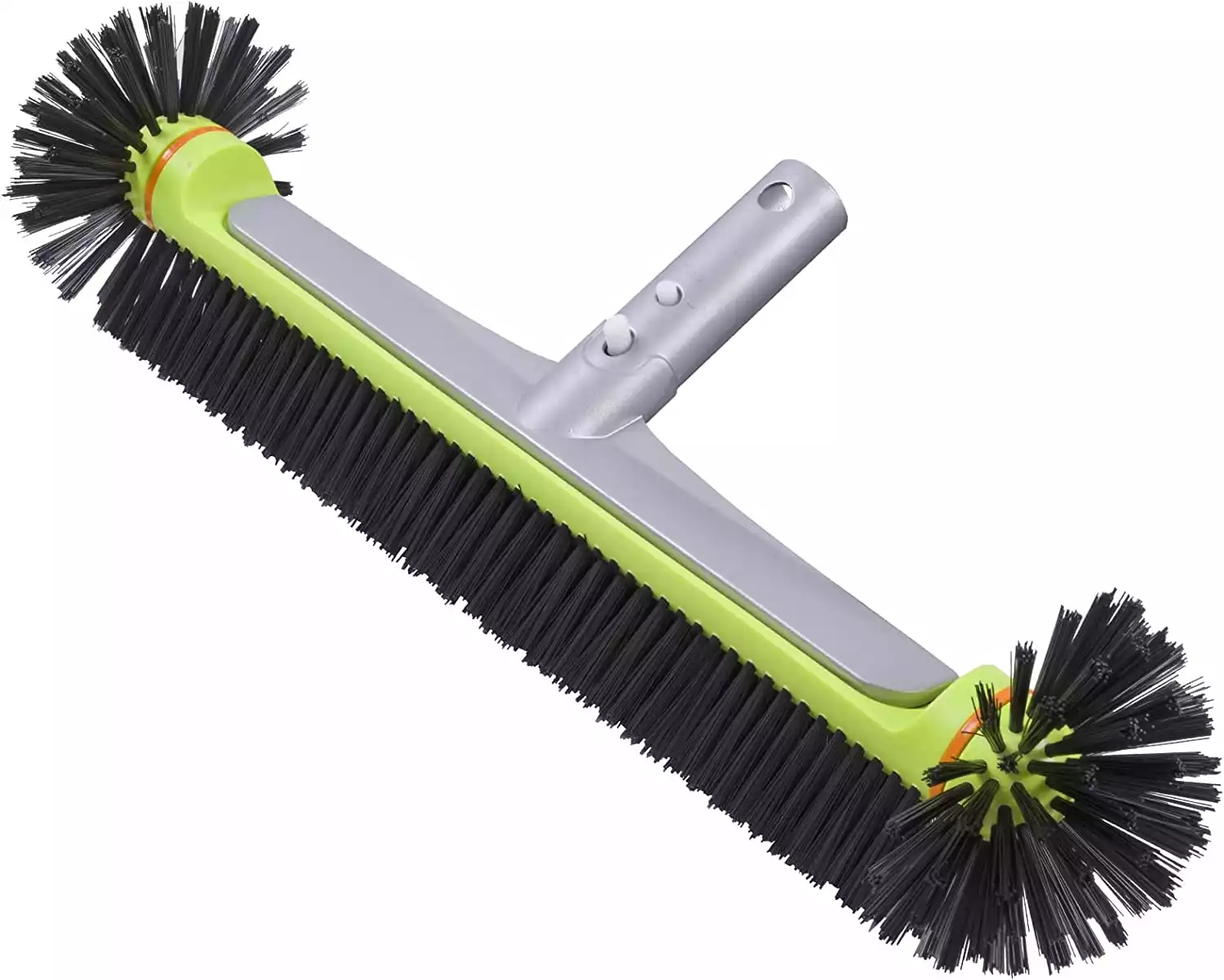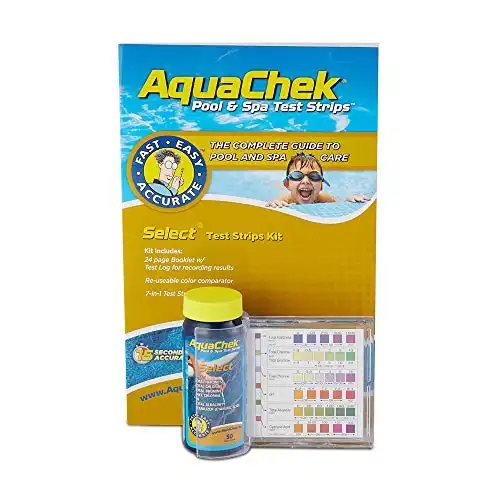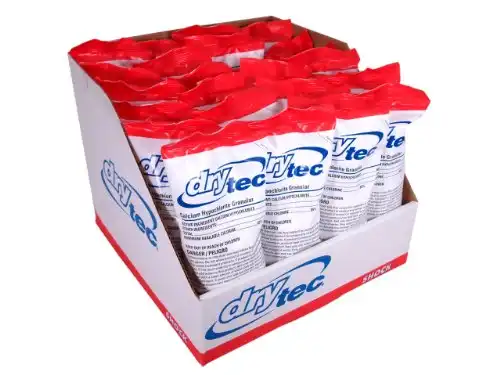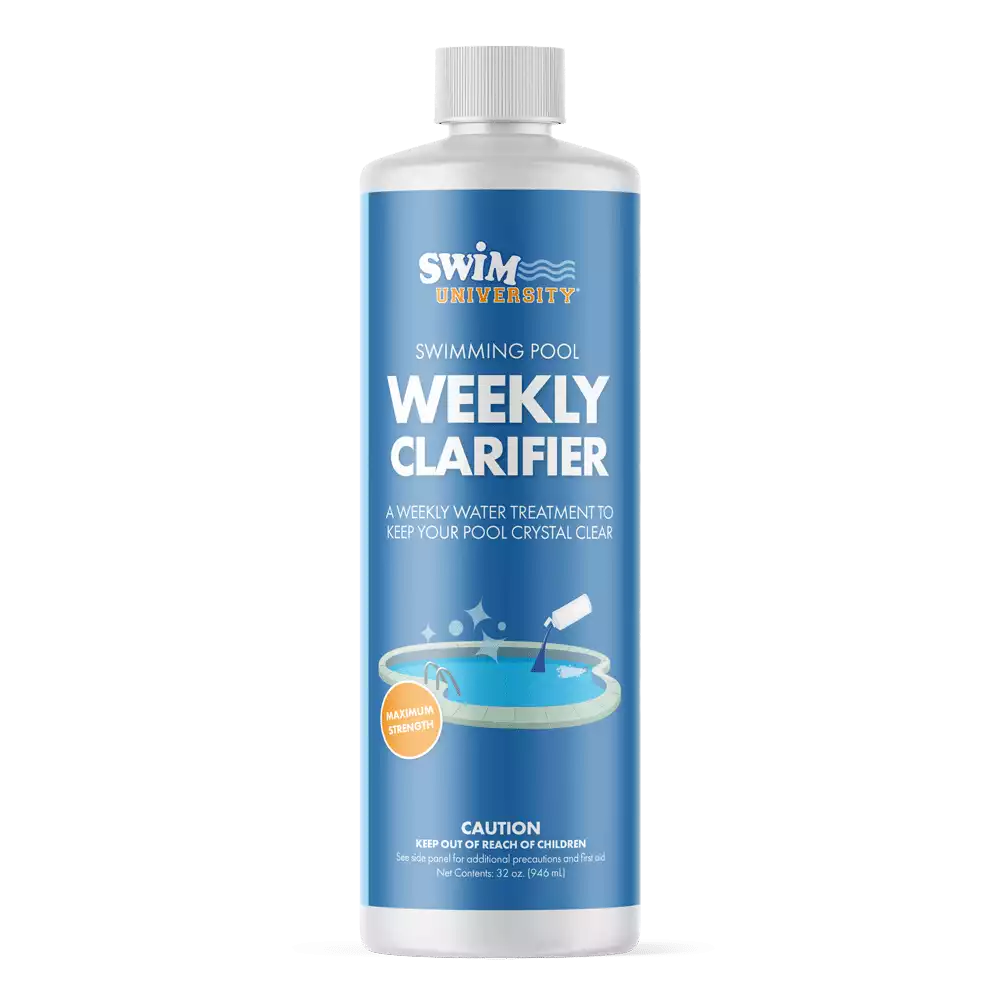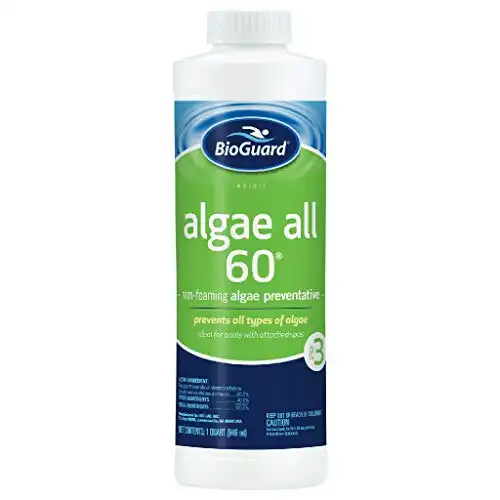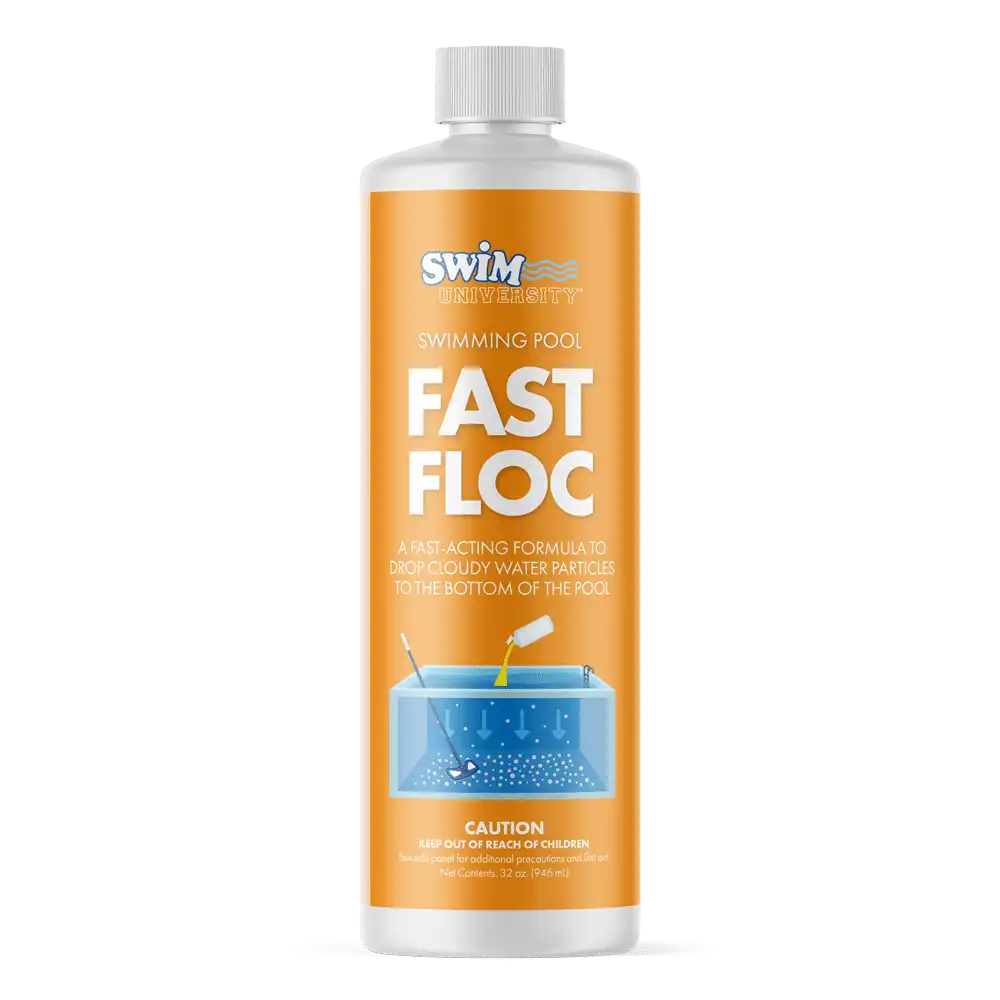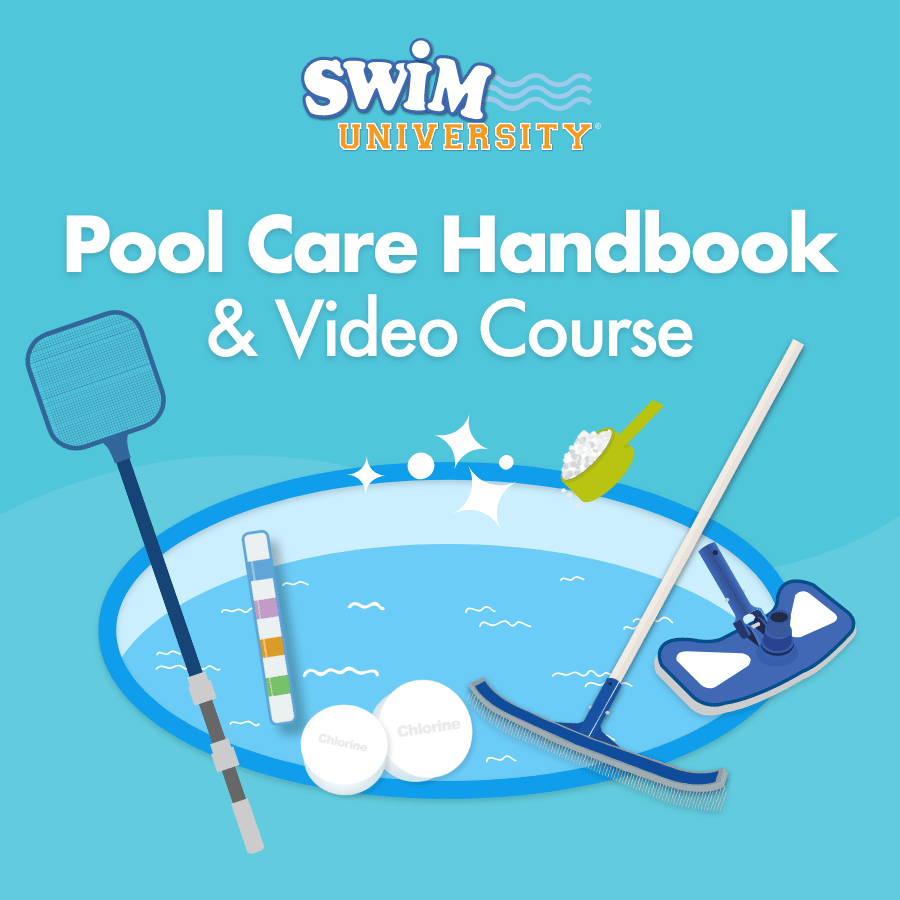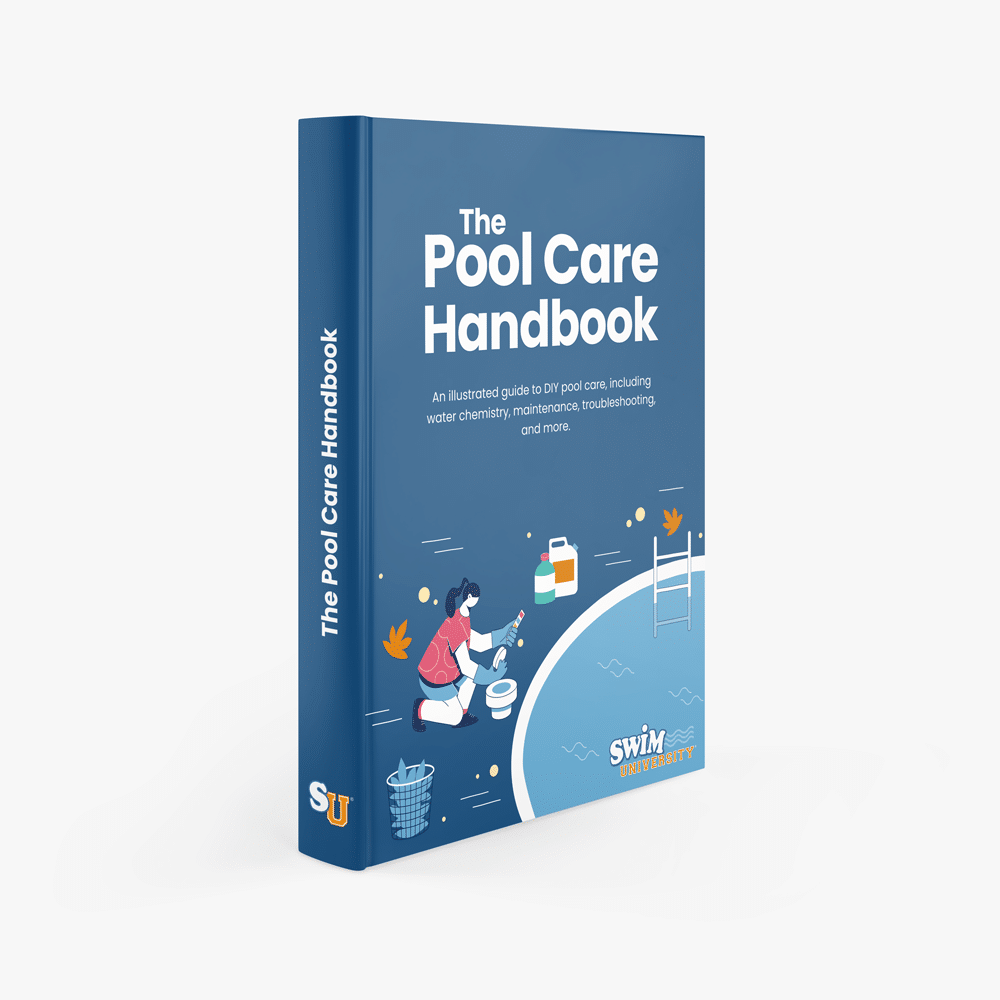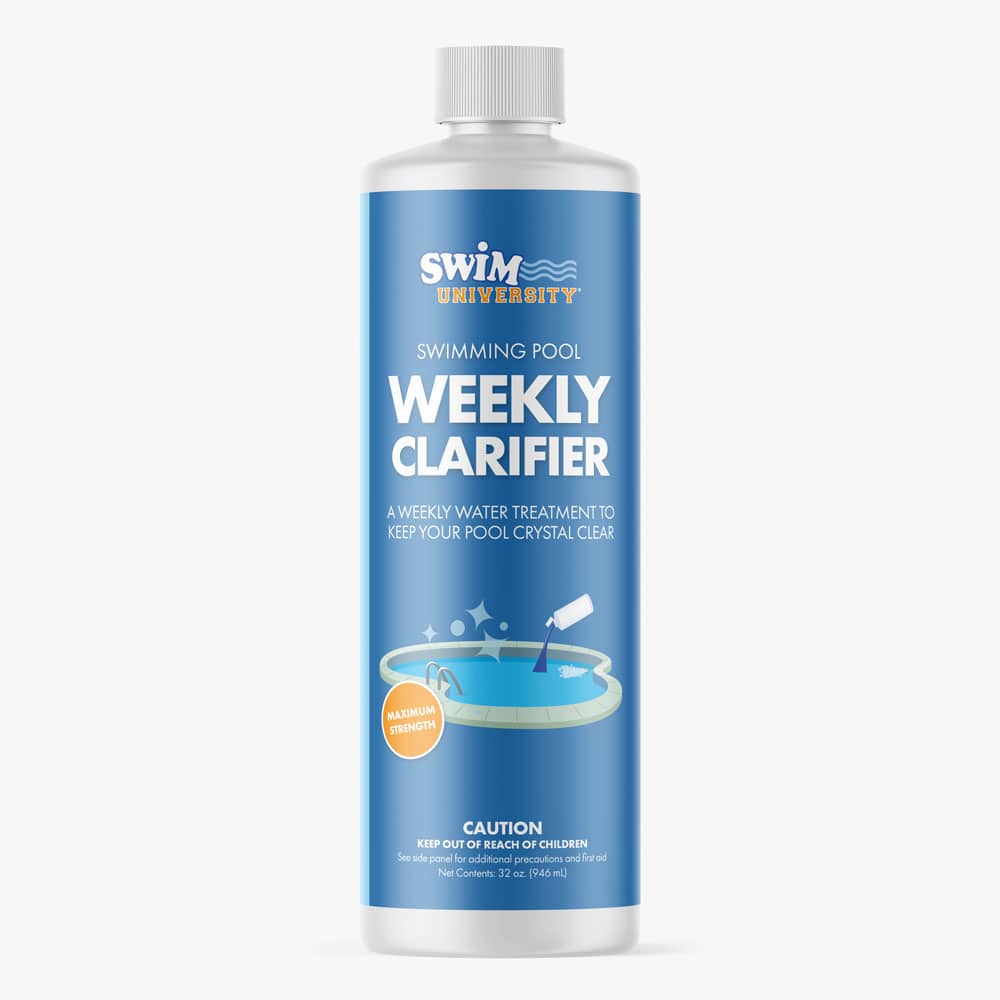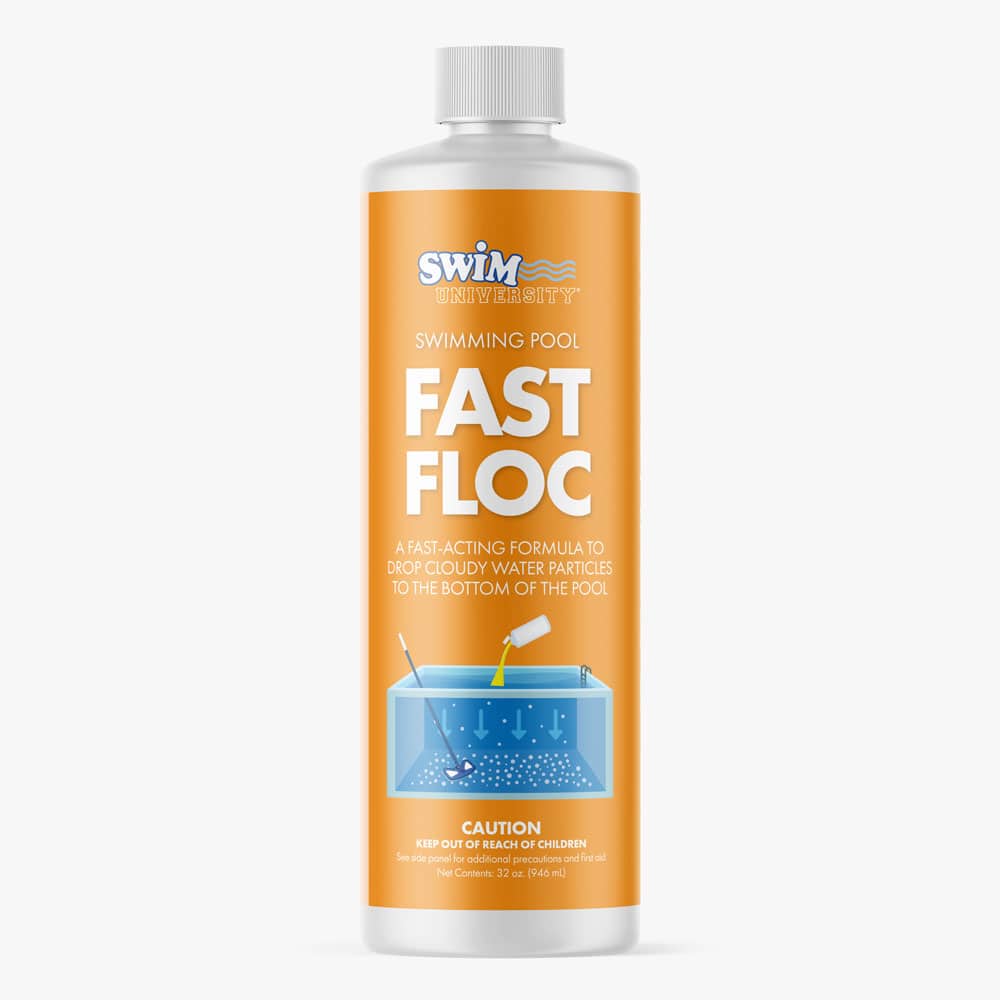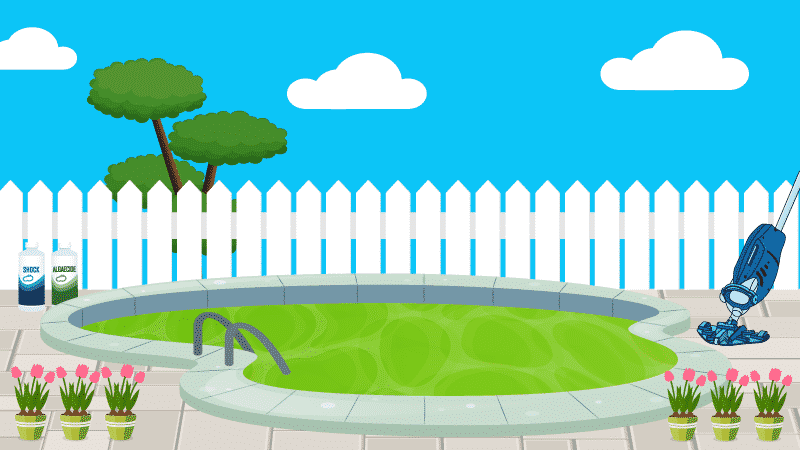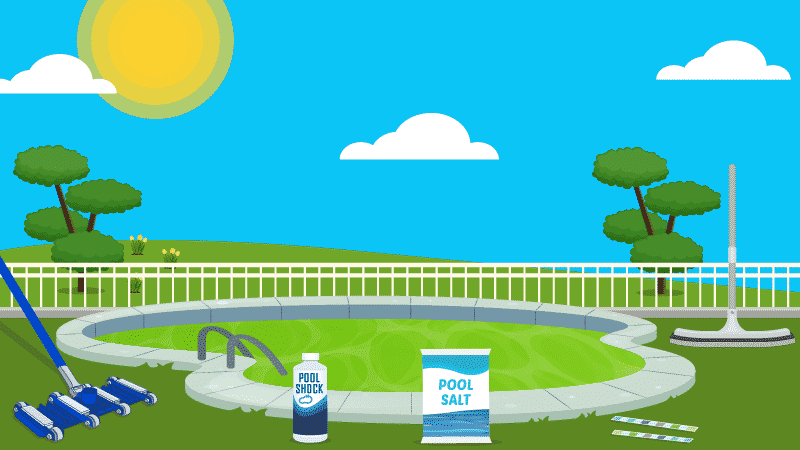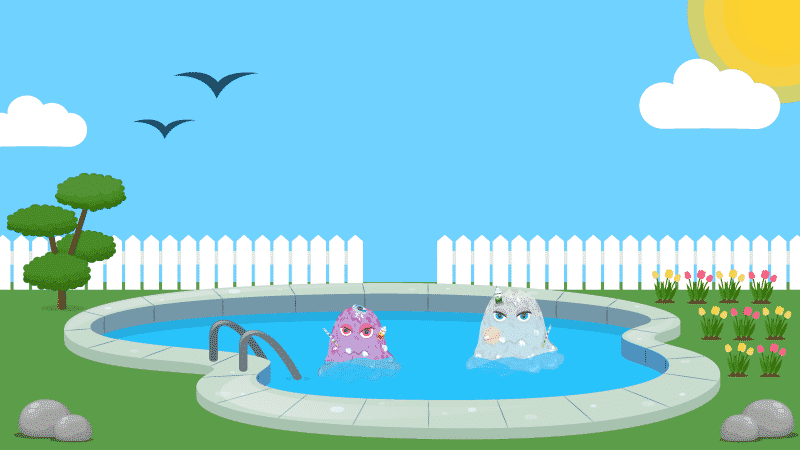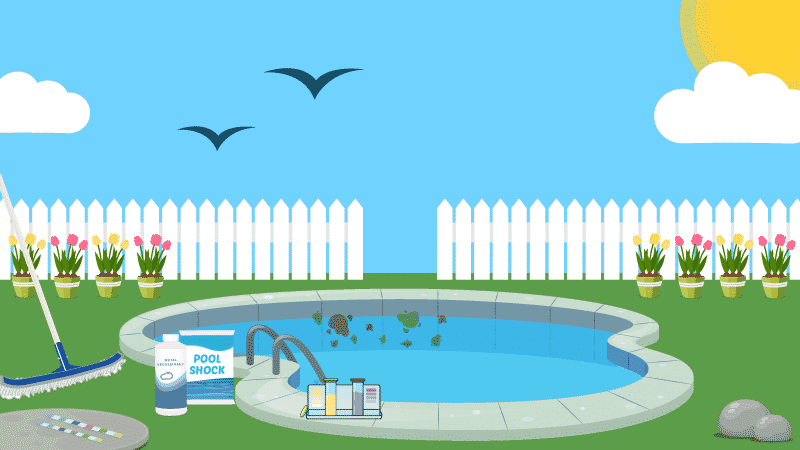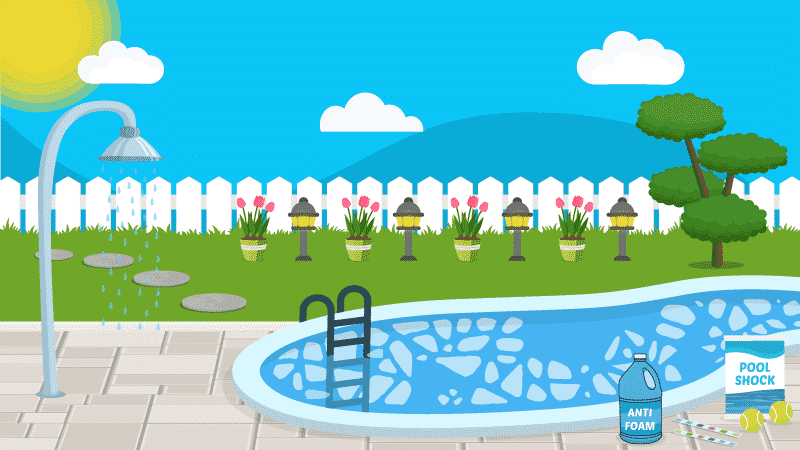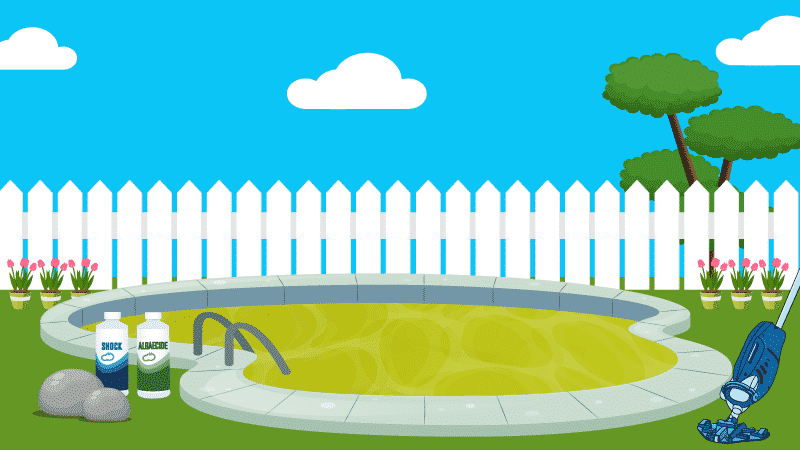Do you have a green pool? It won’t be any fun to swim in or to look at. Don’t worry, though. You don’t have to drain your pool and start over. You can kill pool algae fast and keep it from coming back.
Why Do I Have a Green Swimming Pool?
There’s only one reason: pool algae. If it’s light green, the algae probably just started to take hold. But a deeper green means a bigger algae bloom problem.
Green algae growth happens when your sanitizer or chlorine levels are too low. But before we dive in, if you want to stop your pool from turning green ever again, invest in our pool care video course. You’ll learn how to keep your pool maintenance and water chemistry in check so you never have to fight a green pool ever again.
Cut the confusion with our easy-to-use video course. Save $1,000's on pool care and keep your water clean and clear for good!
Learn MoreHow to Fix Green Pool Water Fast
Here’s our 5-step process for killing algae and clearing a swimming pool in less than a week. Make sure you follow every step to make sure you’re efficient as possible.
1. Brush the Pool Walls and Floor
Attach a pool brush to your telescopic pole and scrub the pool walls, floor, steps, and any other surface the algae may be clinging to. The goal is to get the algae floating in suspension in your pool water giving the chlorine a better chance to kill it.
The wide pool brush with 360-degree reach helps clean hard-to-reach surfaces and tough crevices. Perfect for any type of pool, including vinyl liners, fiberglass, and painted concrete.
If you have a concrete pool, it’s best to use an algae brush for this task. Algae is tough, and will stubbornly cling to the pool’s surfaces, so a heavy-duty brush works better than soft nylon bristles to remove it.
2. Test The Alkalinity and pH Level
Using test strips or a liquid test kit, test the pH and alkalinity levels. Note the levels:
- The pH level should be between 7.4 and 7.6. It’s okay if it’s a bit lower since you’ll be shocking the water later which will raise the pH.
- The alkalinity level should be between 100 and 150 ppm (parts per million). Again, it’s okay if it’s a bit on the lower end.
If your pH and alkalinity are too high, bring them down at this stage. Start by adjusting your alkalinity (here’s our chemistry guide) and testing your water again to make sure you’re in the right range. Hopefully, by adjusting the alkalinity, it’ll put your pH in the right range too. But if not, adjust the pH as well (here’s our guide).
Note: Adjusting your pH and alkalinity at this stage will ensure the shock treatment will be as effective as possible. Having low or high levels may not help kill the algae. Also, testing the water could be the first step before brushing. If you’d rather test, then brush, go for it. It won’t affect the algae killing process.
Tests for 7 important chemistries in seconds: Total Hardness, Total Chlorine, Total Bromine, Free Chlorine, pH, Total Alkalinity, and Cyanuric Acid.
3. Shock Your Pool with Chlorine to Kill Algae
This is the main event in clearing a green pool—killing the algae. Pool shock contains a high level of chlorine that will kill the algae and sanitize the pool. For the best results, use a shock that contains at least 70% available chlorine (calcium hypochlorite).
This fast-acting, quick-dissolving swimming pool shock kills bacteria, controls algae, and destroys organic contaminants in pools.
Important: Even if you usually use non-chlorine shock, you must use chlorine shock to kill algae. And keep in mind it’s best to shock at night!
How much shock do you need to kill the algae in your pool? It depends on the color.
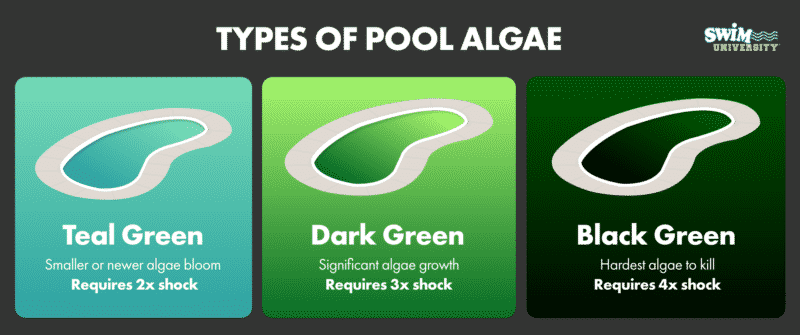
One pound (1 lb or 0.45 kg) of shock treats 10,000 gallons (37,854 L) of pool water. That’s a normal shock treatment if your pool wasn’t green. But since it is and depending on how much algae is in the water (see color chart above), you need to double, triple, or quadruple the dosage.
For example, if you have a 20,000-gallon (75,708 L) pool, and your water was dark green, you’d need 6 bags of shock. That’s a triple dose.
If you need more information on how to shock your pool the right way, here’s our pool shock guide, and the video below 👇.
4. Run Your Pool Filter for 8 Hours (And Shock Again If Needed)
After you shock at night, your should run your filter system for at least 8 hours overnight. Even better, you should run your filter 24 hours a day until your pool is completely clear. This will help clear your pool faster.
Important: Make sure you backwash your filtration system when needed. If you need more help on when and how to backwash your sand, D.E., or cartridge filter, you can read our full guide here.
If the pool is still green or teal in the morning, hit it again with the same amount of shock the following night. And by the next morning, it should be cloudy blue. That’s the goal!
If your pool is cloudy blue, then you successfully killed all the algae in the water. Now you can use a pool clarifier if you want to clear it more quickly, but even if you do, be sure to run the filter for at least 24 hours to get the dead algae out of the water, and ensure the shock has fully dissipated.
Clears cloudy pool water by combining particles, making it easier for your filter to remove. Great for all pools. Also compatible with salt water pools.
5. More Water Testing and Adjust Pool Chemicals
When your green pool isn’t green anymore and you have cloudy blue or clear water, test it again. This time test for pH, alkalinity, calcium hardness, and your chlorine levels. Add chemicals as needed to balance things out.
Test it again to make sure everything’s as it should be, and you’re ready to enjoy your pool again.
How to Keep Pool Algae From Returning
Now that your pool’s clear again, you want to keep it that way. The number one method to do that is to ensure you maintain proper sanitizer levels. This entails testing your water frequently, at least once a week, but we like to test about every other day.
If you notice levels are a bit on the low side, add sanitizer immediately.
And if it will put your mind further at ease, you can add algaecide during regular water maintenance. But honestly, your best bet is just to stay on top of the sanitizer situation.
A copper-free algaecide to help prevent your pool from turning green.
Do I Need to Worry About Pool Phosphates?
You may have heard pool pros or other pool owners say that to control algae, you need to control pool phosphates, and use phosphate remover to do so.
No, you don’t need to worry about phosphates, and no, you don’t need to use phosphate remover.
Trying to remove phosphates from any environment is like removing dust particles from the air. You will never, ever, ever be able to do it completely. The same is true for phosphates. They’re everywhere and in everything.
Yes, they’re a food source for algae. But to control pests in your vegetable garden, do you remove the vegetables? Of course not. You kill the pests. The same is true for algae.
Sanitize, sanitize, test, balance, and sanitize some more. And use the money you would’ve spent on phosphate remover on a nice pool float.
Frequently Asked Questions About Clearing a Green Pool
Opening your cover to a green pool may be disappointing. No, not “maybe.” It is. But never again will you feel defeated by algae now that you have the upper hand. All it takes is a little hard work and the right chemicals, and you can kick that algae to the curb — er, the pool deck.
How long does it take for a pool to clear up from green?
If you follow our method in this article, you can successfully kill all the algae in your pool in less than 5 days. We recommend adjusting your pH and alkalinity, double or triple shocking the pool at night with calcium hypochlorite shock, and running the filter system 24/7.
If you want to get the job done much faster (but with a little more manual labor), you can try our Fast Floc which will drop green water to the bottom of the pool so you can vacuum it out. 👇
A fast-acting formula that drops cloudy water particles to the bottom of the pool so you can vacuum it out. Safe for all pools.
Will chlorine clear up a green pool?
Yes! In fact, enough chlorine kills algae which causes green pool water. but it takes a large amount in the form of calcium hypochlorite super shock. Adding tablets in the skimmer or chlorinator will not clear up your pool. But you could also try using liquid chlorine instead of powdered shock as it mixes in the water faster. Just keep in mind that liquid chlorine is heavy to carry home from the store and to pour around your pool.
Will baking soda clear a green pool?
No. Baking soda will only raise your alkalinity and pH levels and this will not kill algae. Chlorine is what kills algae. But if you need help using baking soda to raise your alkalinity, read our full guide here.
Can you over shock a green pool?
No. The more chlorine shock you add to a green pool, the better chance it has to kill off all the algae. Follow the normal shock treatment based on the size of your pool and you can double, triple, or quadruple the dose to kill algae.
Will clarifier clear a green pool?
No. Pool clarifier binds particles together to be big enough for your filter to grab. If you have algae, it’s impossible for your filter to remove all of it. Instead, you need to kill it with chlorine. You can physically remove algae by using pool floc, which sinks the algae to the bottom of the pool, but it requires a lot of work to vacuum it out. Read our full pool algae guide here.
Happy Swimming!
Need More Pool Maintenance Help?
- Download our free Pool Care Cheat Sheet. It’s a free, easy-to-use guide to help you keep track of taking care of your pool.
- Subscribe to our Swim University YouTube Channel. We publish free video tutorials throughout the pool season.
- Check out our Pool Care Course. You’ll get 30+ step-by-step videos and a downloadable guide with everything you need to know about pool maintenance.

